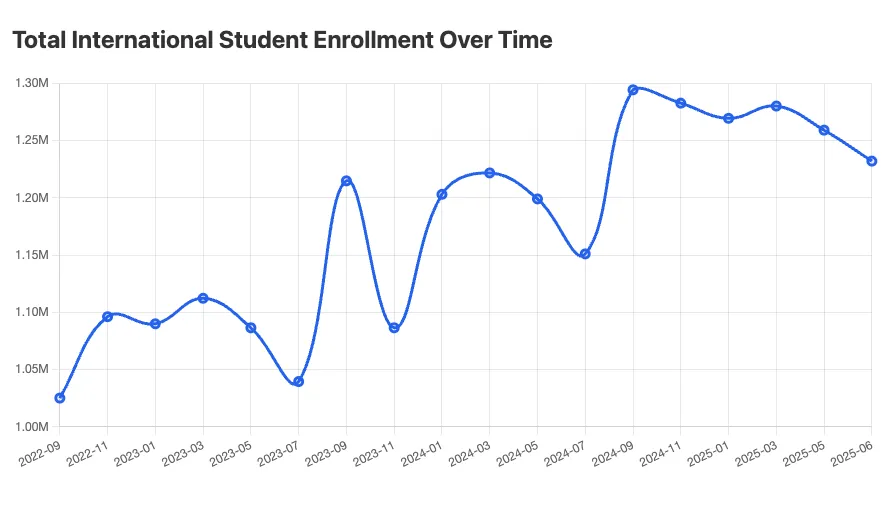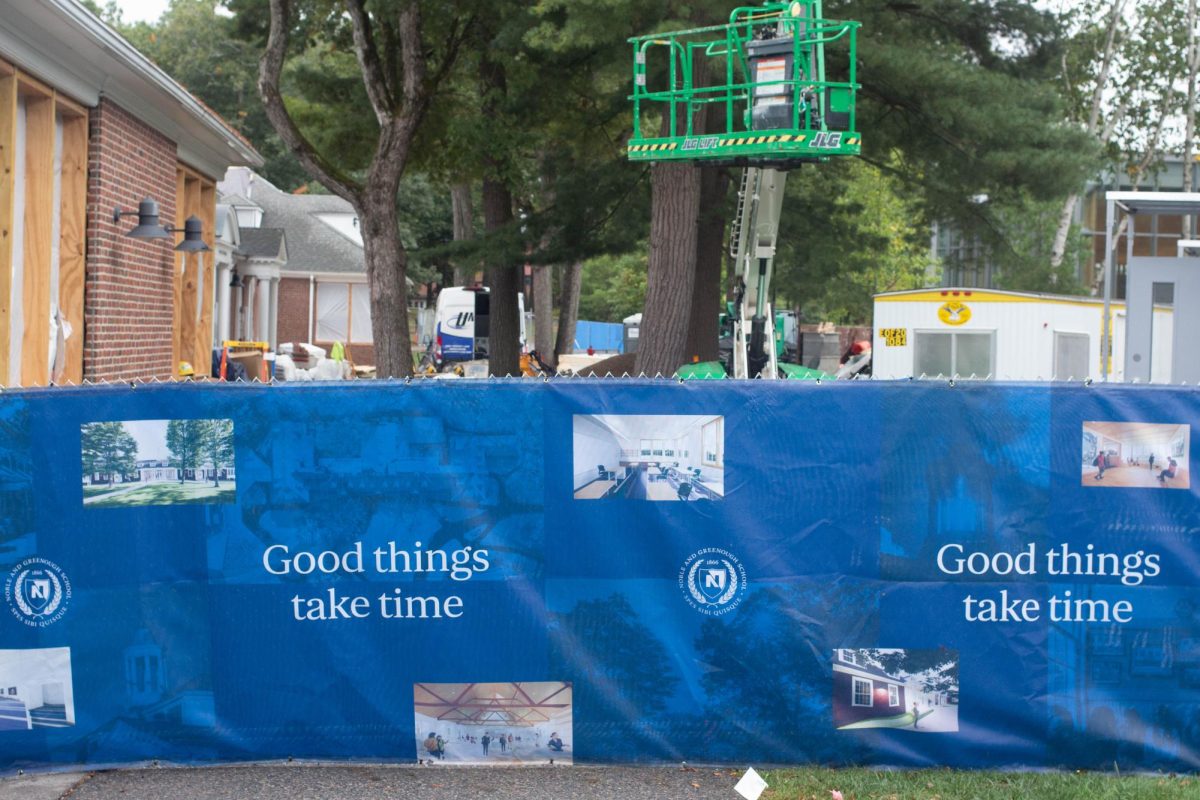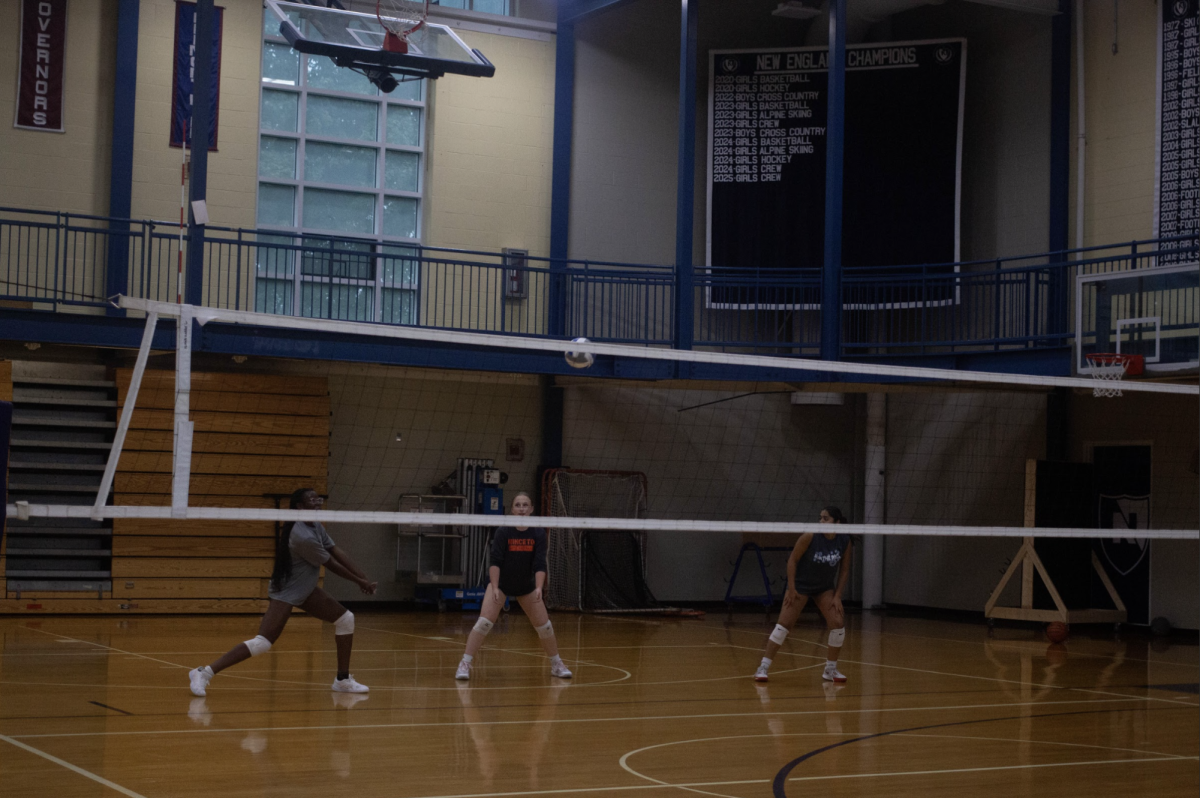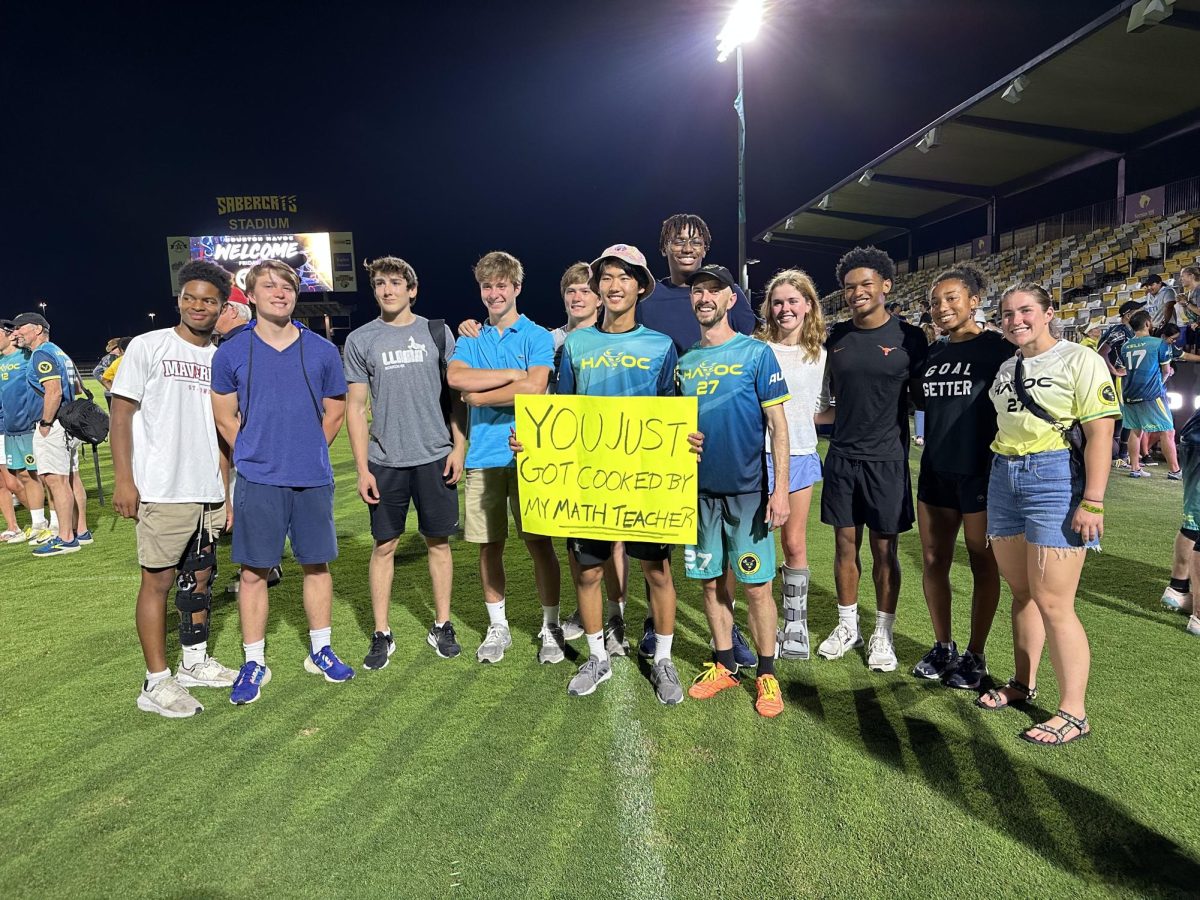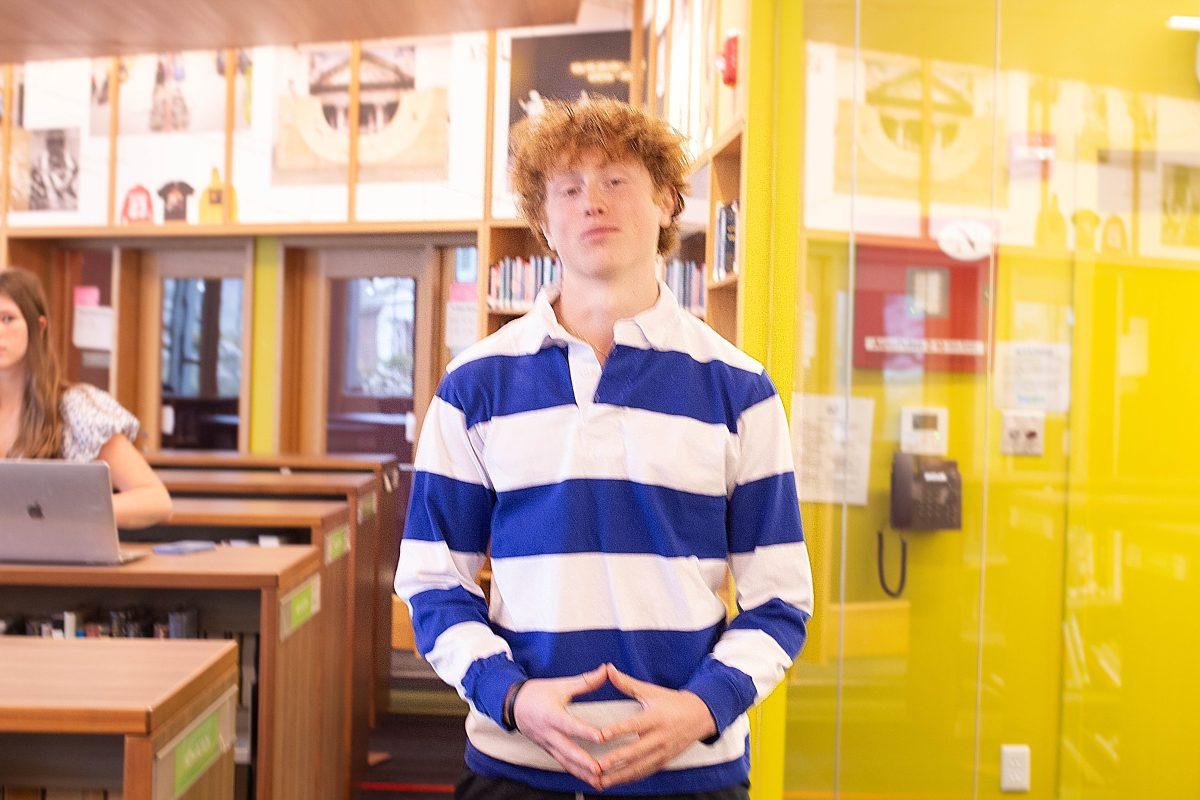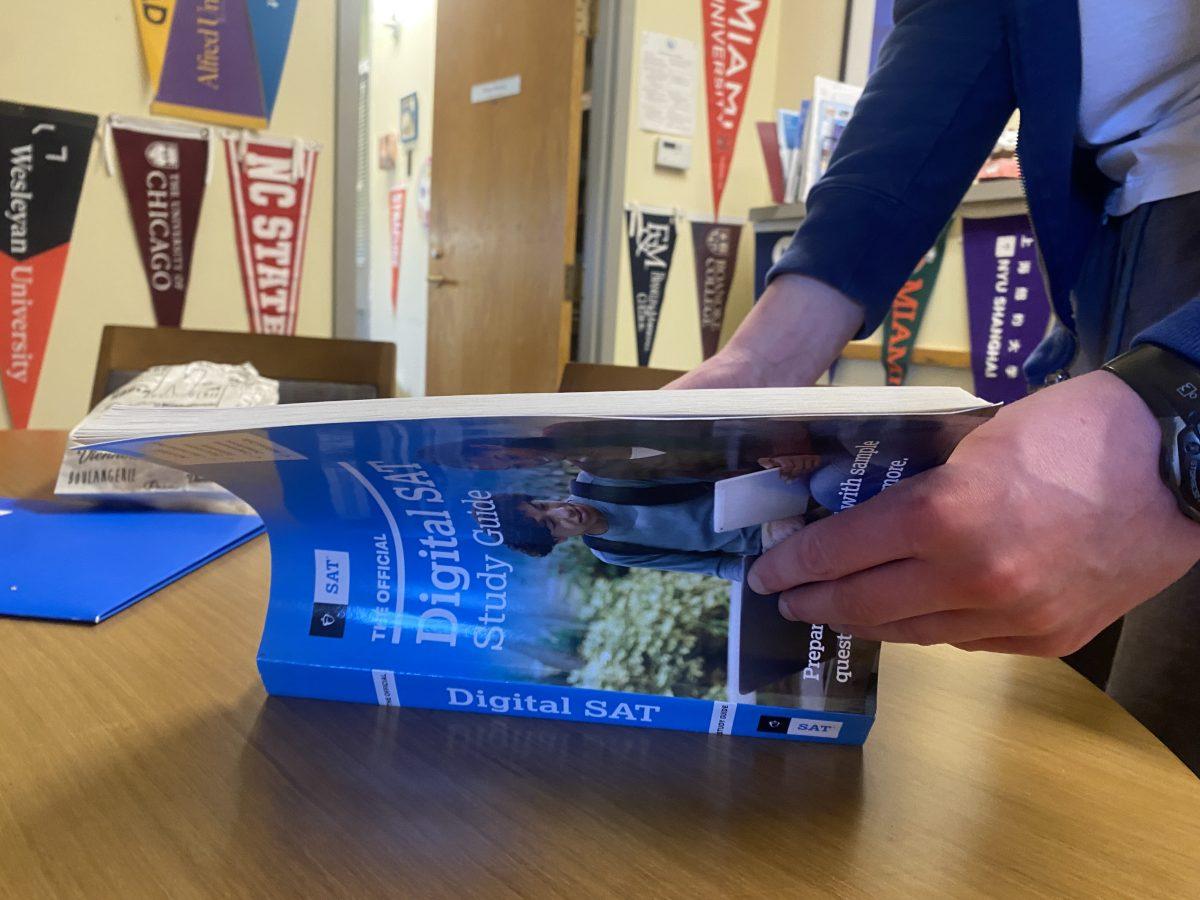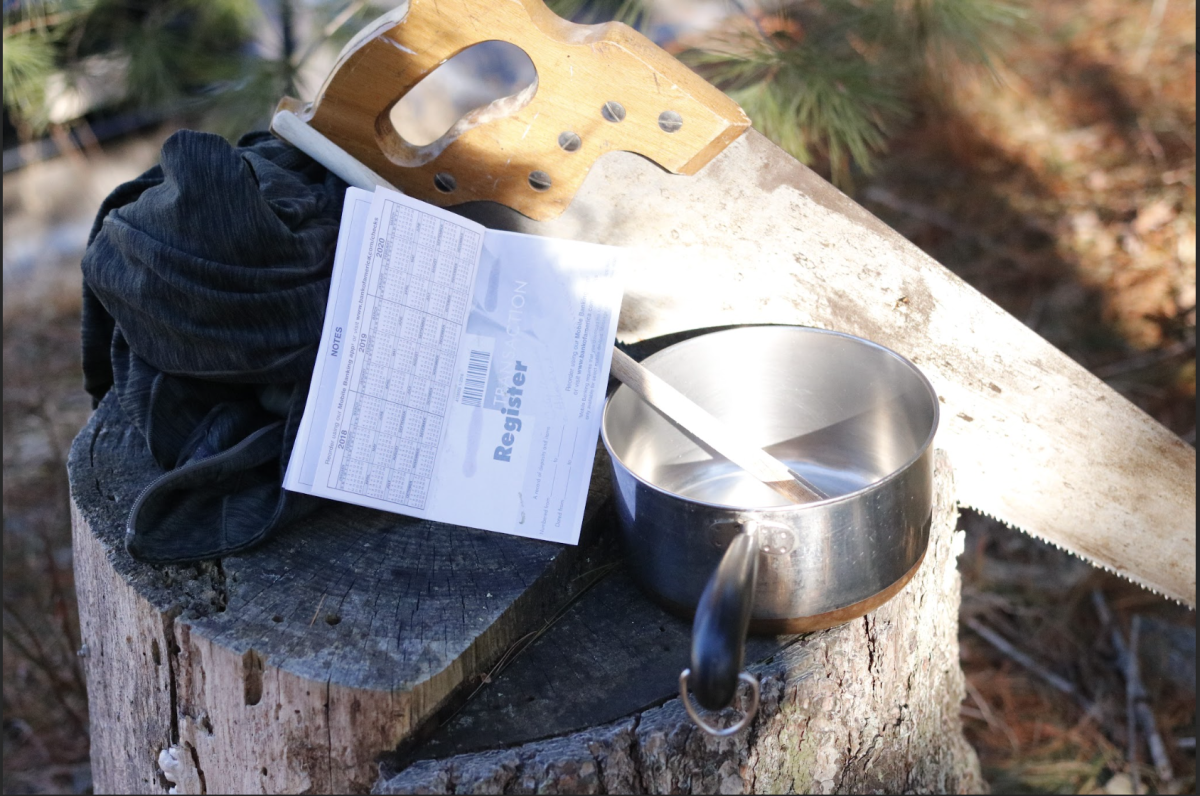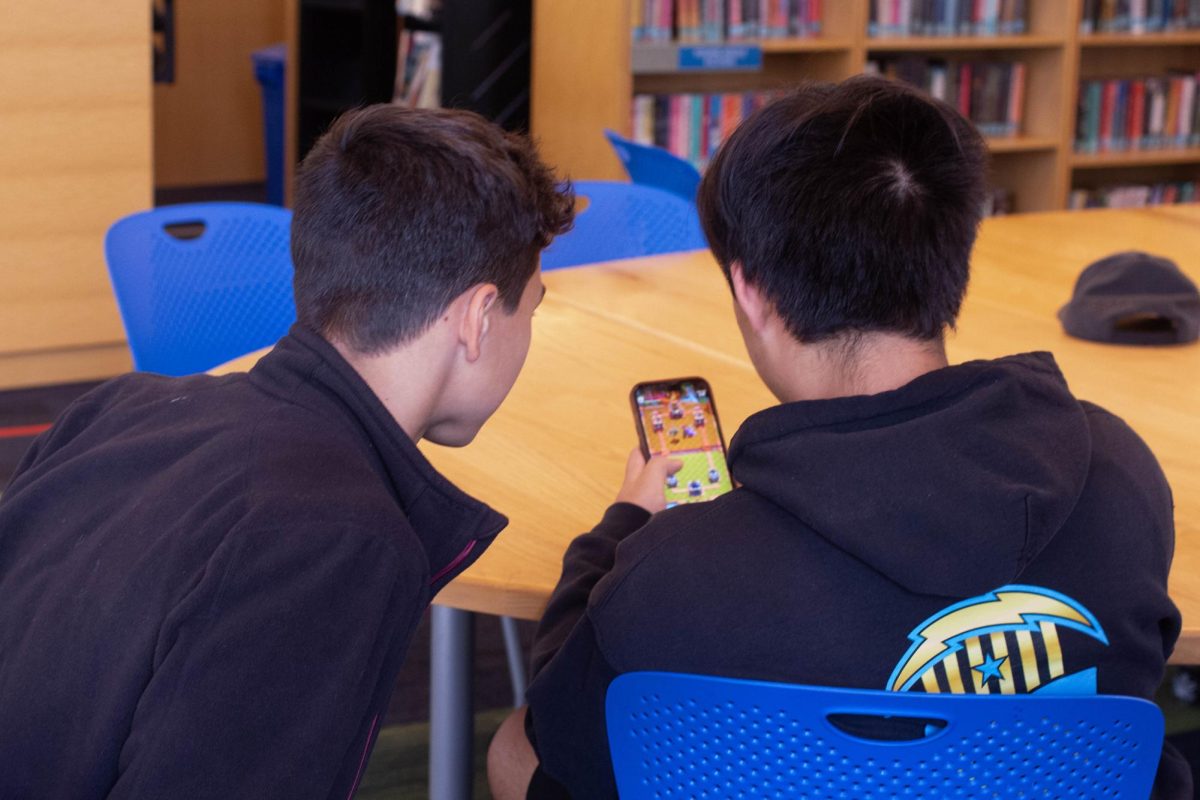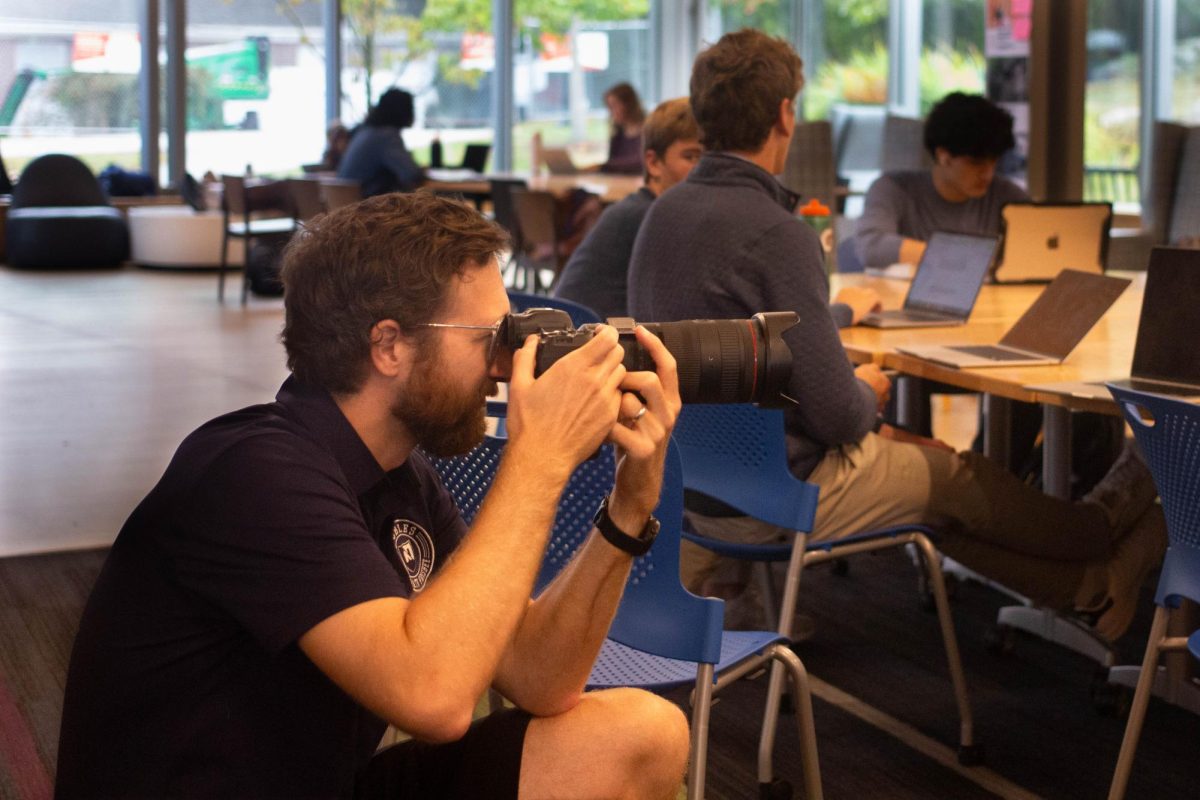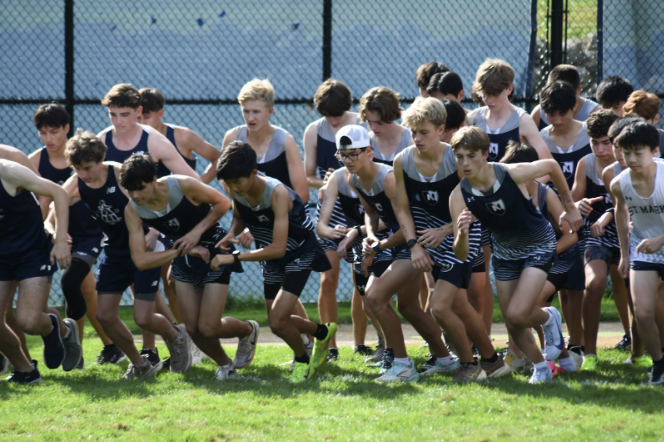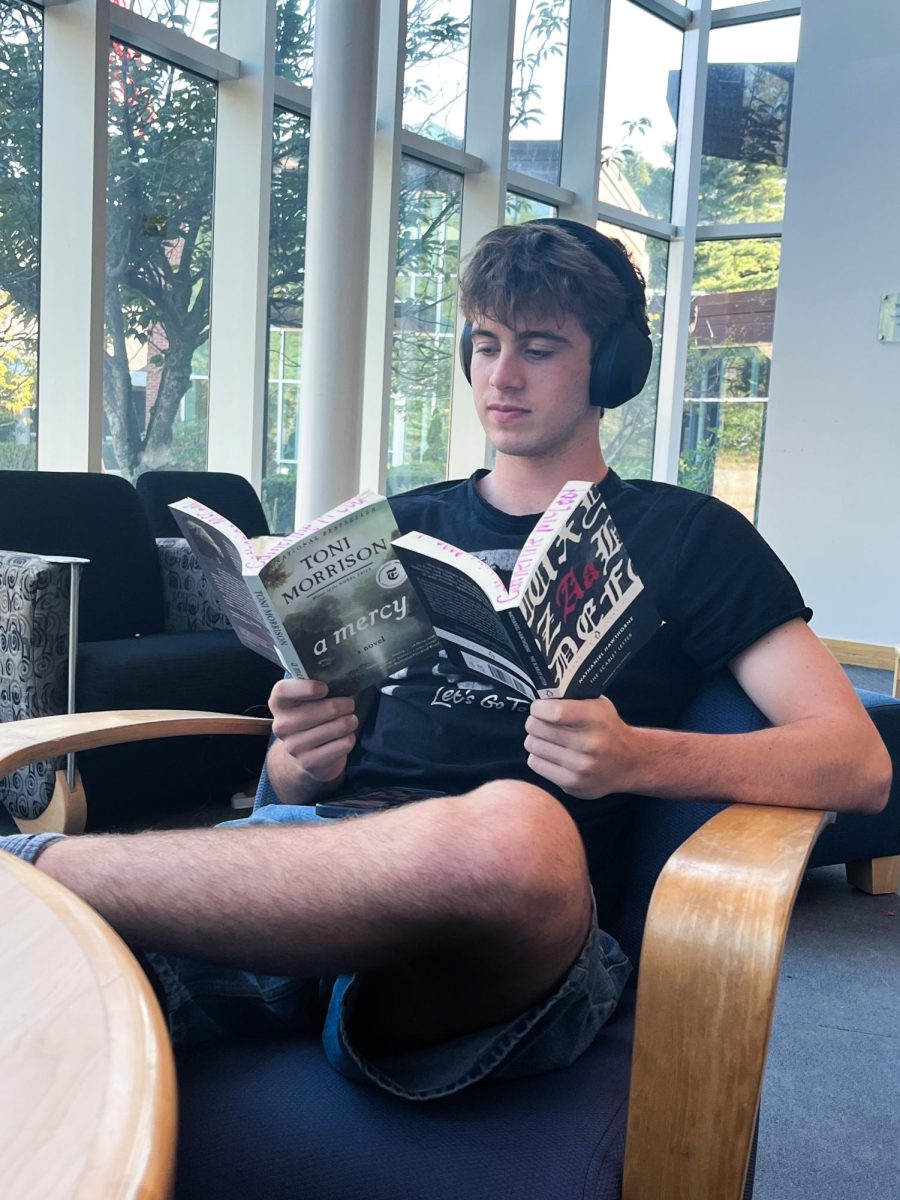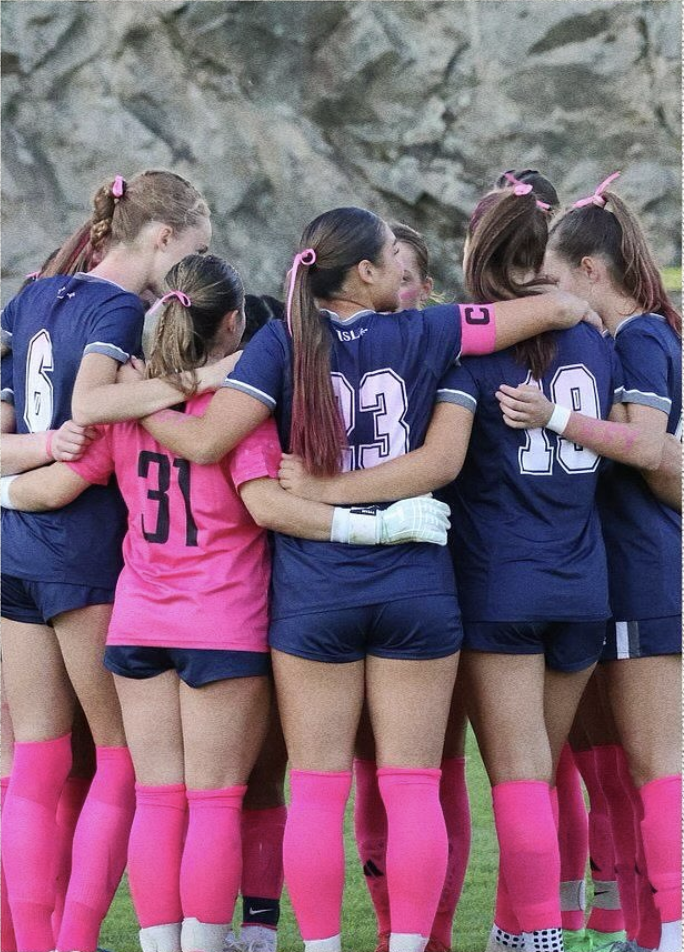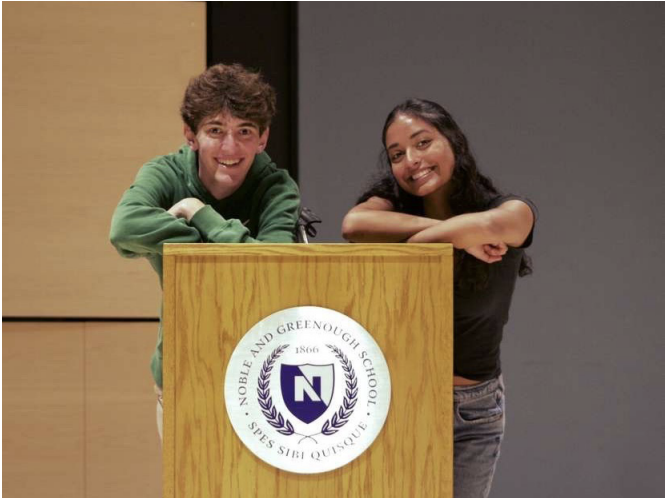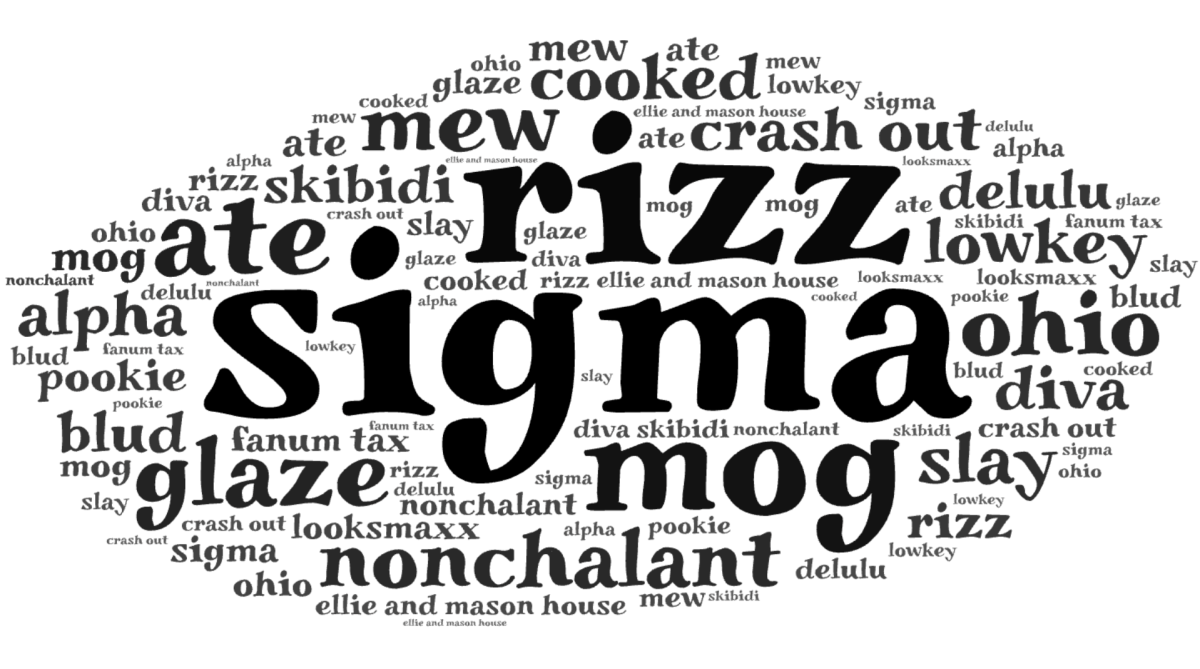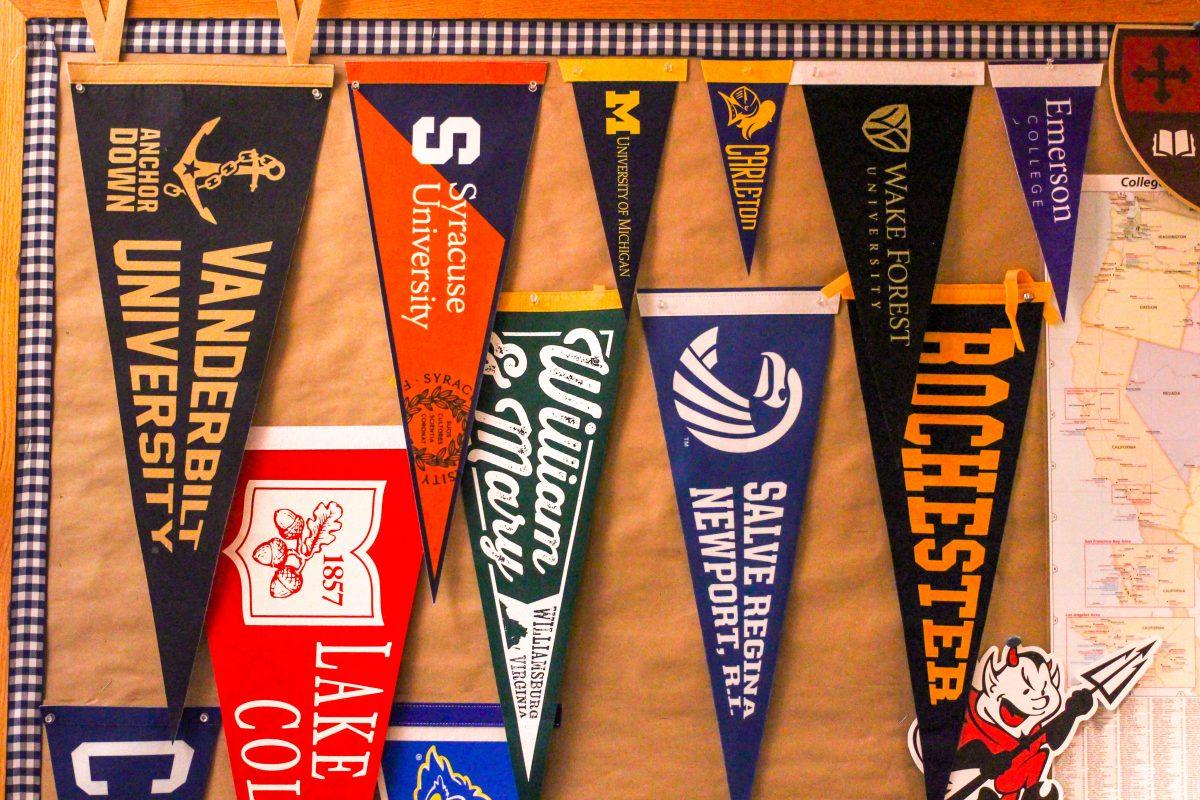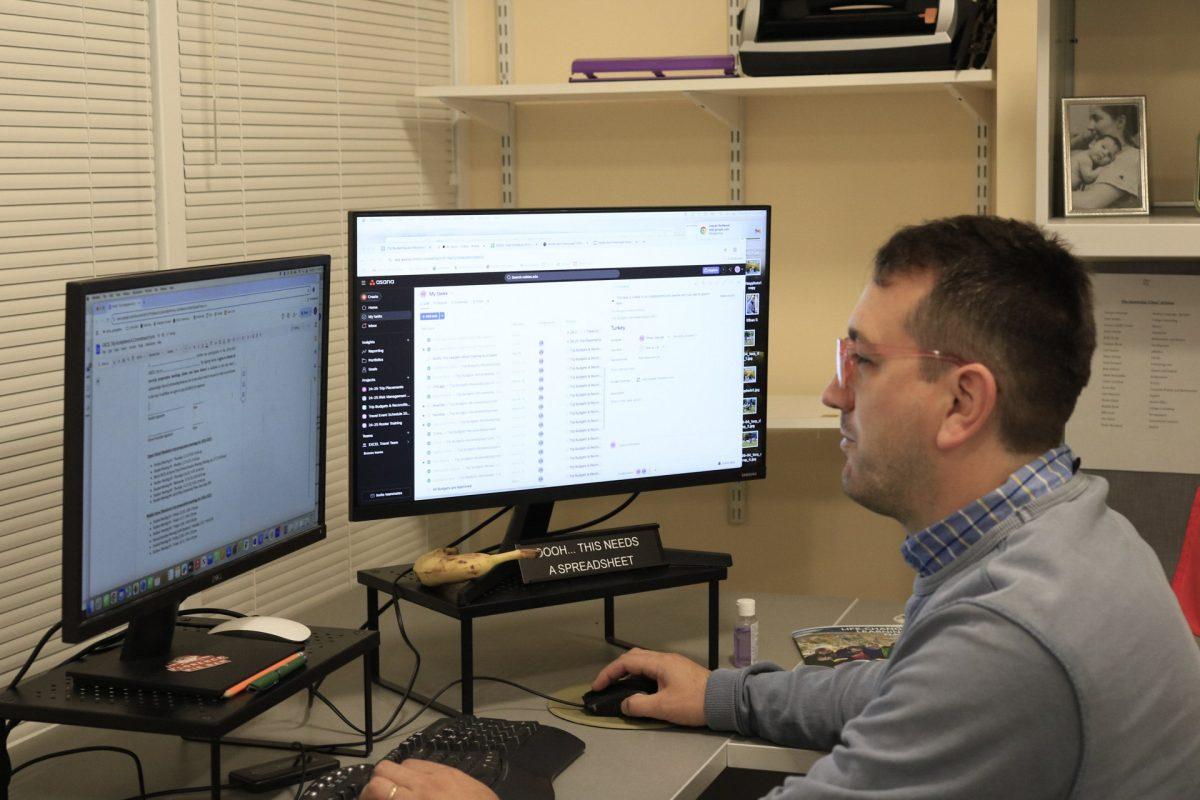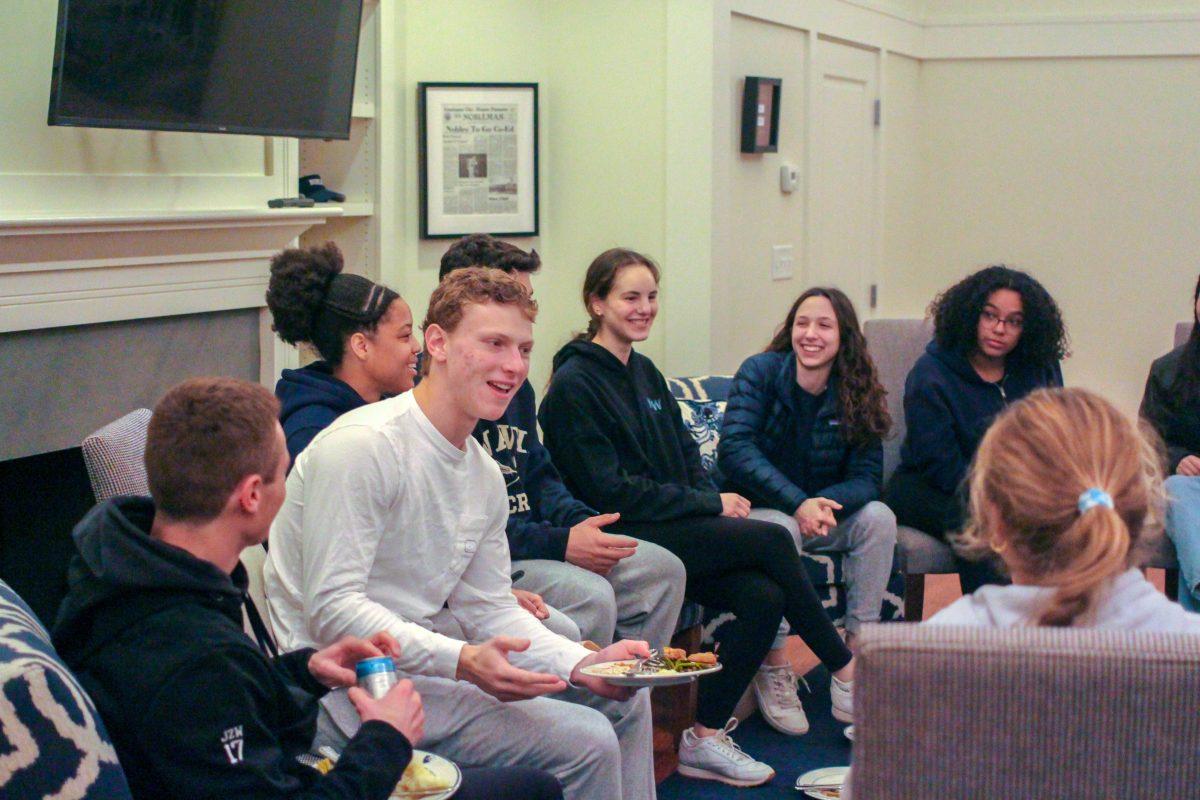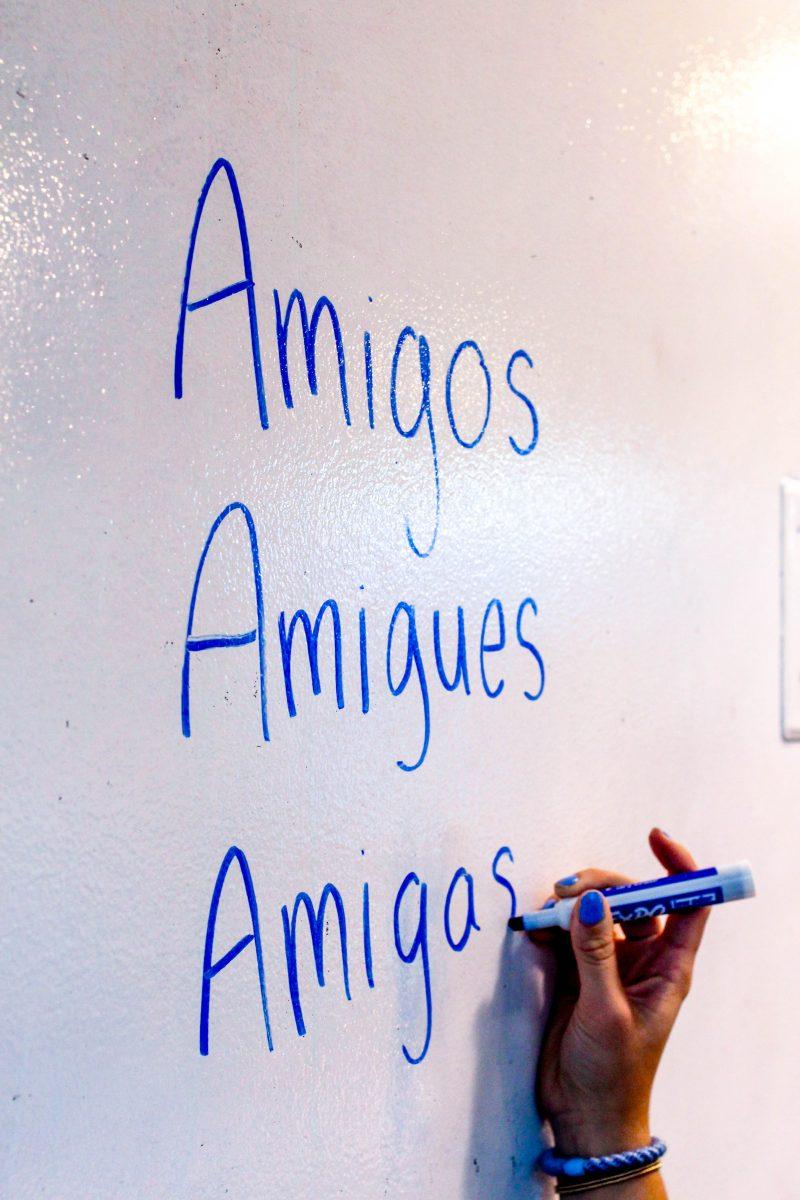Whether in the classroom, library, or sports fields, teachers, coaches, and faculty are constantly confused by students’ use of newly popularized slang words. Walk through Shattuck Schoolhouse, and you are likely to hear words such as “lore,” “mog,” “cap,” and “skibidi.” Although these words may seem like gibberish to the untrained ear, they carry nuanced meanings for students. Meanwhile, Nobles faculty strive to understand the language their students so often use.
Just ask Alumni Coordinator Ellie Scott, who had an eye-opening experience with the word “lore” this year. Scott was talking to her co-workers when she first used “lore,” which she had heard from the Girls Cross Country Team. “I said, ‘Guys, I have some lore for you.’ They said, ‘What are you talking about?’” Scott said. “I was like, it’s like gossip, it’s drama. And one of my co-workers said, ‘No, I don’t think so. It’s like folklore.’ At that point, I started to overthink it myself, and I wasn’t totally sure, even though I felt pretty confident,” Scott said.
Despite “overthinking,” Scott knew what must be done to get to the bottom of this linguistic mystery. “I thought, you know who would know the answer? Leah Farb. And so I sent Leah an email because I knew she would give me a great definition,” Scott said. When Leah wrote back, it turned out that Scott had been spot on with her use of the slang.
“I felt on top of the world because I felt like, all right, I’m super-cool; I’m super in with it,” Scott said, recalling her feelings of success.
However, not all stories have such happy endings. Mathematics Faculty Anna Dolan has experienced the all too familiar feeling of misusing slang words in front of students. One night in the dorms, Dolan overheard Jasmyn Cooper (Class I) succeed on a challenging statistics problem. “Jasmyn said, “Oh, that’s tight”[…]and I was like, ‘Oh my gosh, is that word coming back?’” Dolan said. To Dolan’s dismay, however, Cooper had in fact not said “tight” but “type.” “So from that point forward, I started trying to use it correctly, and it never worked, not even one time,” Dolan said.
“Jasmyn said, ‘Oh, that’s tight’[…]and I was like, ‘Oh my gosh, is that word coming back?’”
The considerable effort from faculty to understand this language suggests that there may be a deeper reason students are using slang. The constant use, or misuse, of colloquial language around Nobles begs the question: why do Nobles students use slang so much? Is it just a product of the world we live in? Is it a result of the consumption of media that perpetuates this language?
English Faculty Margaret Draper believes that slang is used to lessen the gravity of language. Draper used a common slang word, “lowkey” to make her point. “The word ‘lowkey’ never seems necessary in a sentence. People just use it when they mean to say that they think something, but they’re not ready to commit to it,” Draper said. “‘Lowkey’ takes the seriousness out of the situation or the language,” she said.
Although it may appear as though Draper is forever pitted against filler words such as “lowkey” as an English teacher, she highlights a pattern The Nobleman has seen across campus. There seems to be a trend of students who are disinclined to take stances on disputed issues and hesitant to assert their opinions. This reluctance may be a result of a lack of trust among peers or a lack of knowledge among students. Whatever the reason, the linguistic divide between students and faculty and the ever-present slang on campus serve to highlight areas of growth for open dialogue at Nobles.

